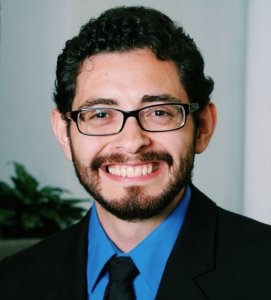Presented By: Biomedical Engineering
BME 500: Brian Aguado, Ph.D.
"Engineering precision biomaterials for personalized medicine "

he future Aguado Research Group will develop “precision biomaterials” that enable the evaluation of a patient’s unique biology to diagnose and treat a variety of health disorders as a function of sex, age, and/or ancestry. Precision medicine is a movement in clinical practice that seeks to develop therapies tailored for specific patients or subsets of patients. As mounting evidence suggests that the “one size fits all” approach to medicine is ineffective, my future lab seeks to exploit biomaterials as in vitro culture tools or implantable devices in vivo to understand how patient-specific variables may impact disease onset, progression, and treatment. In my talk, I will describe my past, present, and future work in precision biomaterials. During my graduate training with Prof. Lonnie Shea at Northwestern University, I developed implantable biomaterial scaffolds for the recruitment and early detection of metastatic cancer cells, which may serve as a platform to capture disseminating tumor cells for downstream precision medicine applications. My current postdoctoral research with Prof. Kristi Anseth at the University of Colorado Boulder is focused on engineering personalized in vitro disease models of aortic valve stenosis using serum from individual aortic valve stenosis patients to culture valve and cardiac fibroblasts and hydrogels as extracellular matrix mimics. I will also share my outlook for future work in exploring sex differences in cardiovascular disorders using precision biomaterials. In sum, precision biomaterials may serve as tools to improve our understanding of how patient-specific variables impact disease mechanisms and guide more effective diagnostics and treatments for individual patients or subsets of patients.